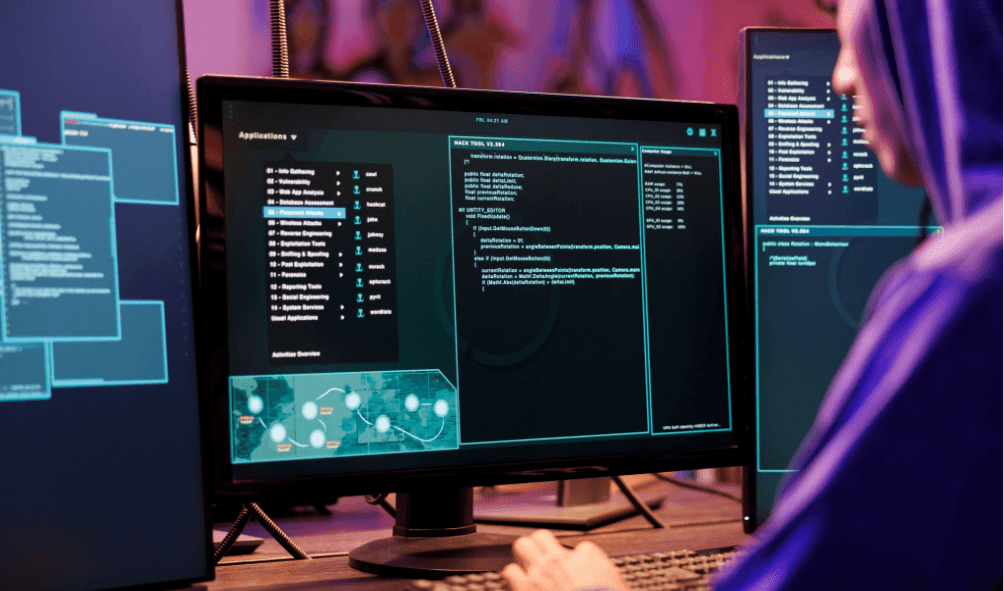Uncategorized
Jun 26, 2024
In the fast-paced world of software development, crafting clean, maintainable, and scalable code is more than just a skill—it’s an art form. Clean code isn’t just about getting your program to function; it’s about weaving a tapestry of logic that fellow developers can easily read, comprehend, and build upon. This approach is crucial for creating software that doesn’t just survive but thrives, adapting seamlessly as needs shift and technology advances.
Think of clean code as the foundation of a well-built house. It’s not just about the façade that everyone sees; it’s about the sturdy framework that allows for future renovations and expansions. In the world of coding, this means writing with clarity and foresight, anticipating how your work might be interpreted and expanded by others down the line.
Why Clean Code Matters
Maintainability
Imagine you’re reading a well-written book: the story flows smoothly, and everything is easy to follow. That’s what clean code feels like for developers. When code is clear and simple, it’s much easier for other developers to jump in, understand, and work on it. This is especially important because, over time, many different developers will likely work on the same codebase. Clean code means they can quickly find and fix bugs, add new features, and make changes without getting lost in a tangled mess.
Scalability
As your software grows, so does its complexity. This is where the magic of clean code comes in. Scalability is all about making sure your software can handle growth, whether that’s more users, more features, or more data. Clean code, with its well-organized and modular structure, makes this possible. It allows your system to expand smoothly, handling more complicated tasks without becoming a nightmare to manage. Simply put, clean code ensures your software can grow and adapt alongside your business needs, staying robust and efficient even as demands increase.
Principles of Clean Code
Readability
Think of clean code like a well-written story – it should be easy to understand at first glance. This means using clear and meaningful names for variables and functions, writing helpful comments when needed, and sticking to consistent coding standards. When code is readable, it’s much simpler to debug and maintain, saving time and frustration down the line.
Simplicity
Keep it simple. This means breaking down complex problems into smaller, more manageable parts. Simple code is easier to test, debug, and expand. Aim to write code that does one thing really well instead of trying to tackle multiple problems at once.
Modularity
Modular code is like building with Lego blocks. Each piece is a distinct, independent module with a single responsibility and well-defined interfaces for interacting with other modules. This makes the overall system easier to understand and manage, allowing individual modules to be developed, tested, and maintained on their own.
Reusability
Reusable code is like having a versatile tool that you can use in different situations. By designing code that can be used in various parts of your application or even in different projects, you reduce duplication and promote consistency. This involves creating generic functions and classes that are easy to adapt to different contexts.
Testing
Writing tests is an essential part of writing clean code. Tests make sure your code works as expected and help catch bugs before they become bigger problems. Automated tests, like unit tests and integration tests, are particularly useful because they can be run frequently to detect issues early in the development process.
Best Practices for Writing Clean Code
Consistent Naming Conventions
Consistency is key when it comes to naming variables, functions, and classes. By using a standard naming convention that is widely recognized within your programming language or organization, you make your code more predictable and easier to follow.
Keep Functions Small
Think of functions like building blocks – they should be small and focused on doing one thing well. Small functions are easier to understand, test, and reuse. If a function starts to get too long or complex, consider breaking it down into smaller, more manageable pieces.
Avoid Global Variables
Global variables can create unexpected side effects and make it harder to track where and how data is being modified. Instead, use local variables within functions and pass data through function parameters when needed. This keeps variables scoped to where they are needed, improving code modularity and clarity.
Write Comments Sparingly
While comments can provide helpful context, code should ideally be self-explanatory. Use comments sparingly and focus on explaining why certain decisions were made rather than what the code is doing. If code is overly complex or unclear, it may be a sign that it needs refactoring or simplification.
Refactor Regularly
Regularly revisiting and improving existing code through refactoring is crucial for maintaining clean and efficient code. Refactoring involves restructuring code to improve its readability, maintainability, and performance without altering its external behavior. By addressing technical debt early and often, you ensure that your codebase remains healthy and sustainable over time.
Conclusion
The art of writing clean code is a continuous journey of improvement and discipline. By focusing on readability, simplicity, modularity, reusability, and testing, developers can create software that is both maintainable and scalable. These principles not only improve the quality of the code but also enhance collaboration and productivity within development teams. Embracing the art of clean code ensures that the software we build today remains robust, adaptable, and ready to meet the challenges of tomorrow.



